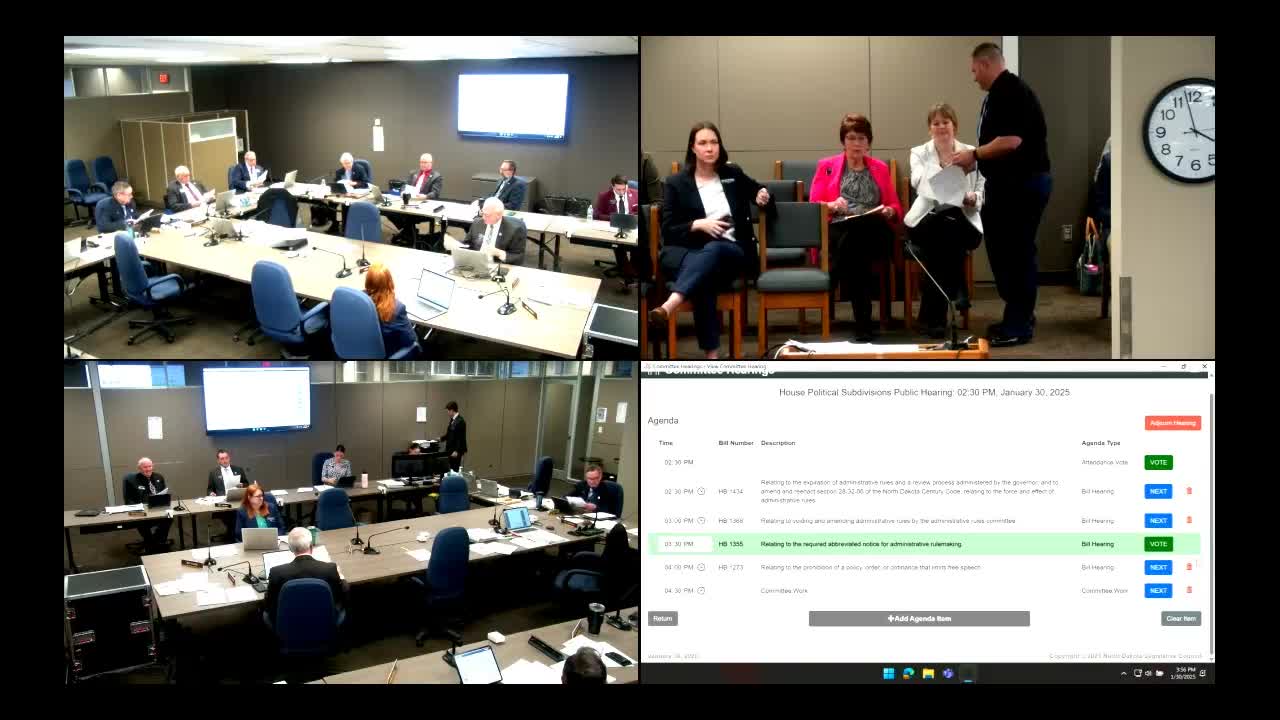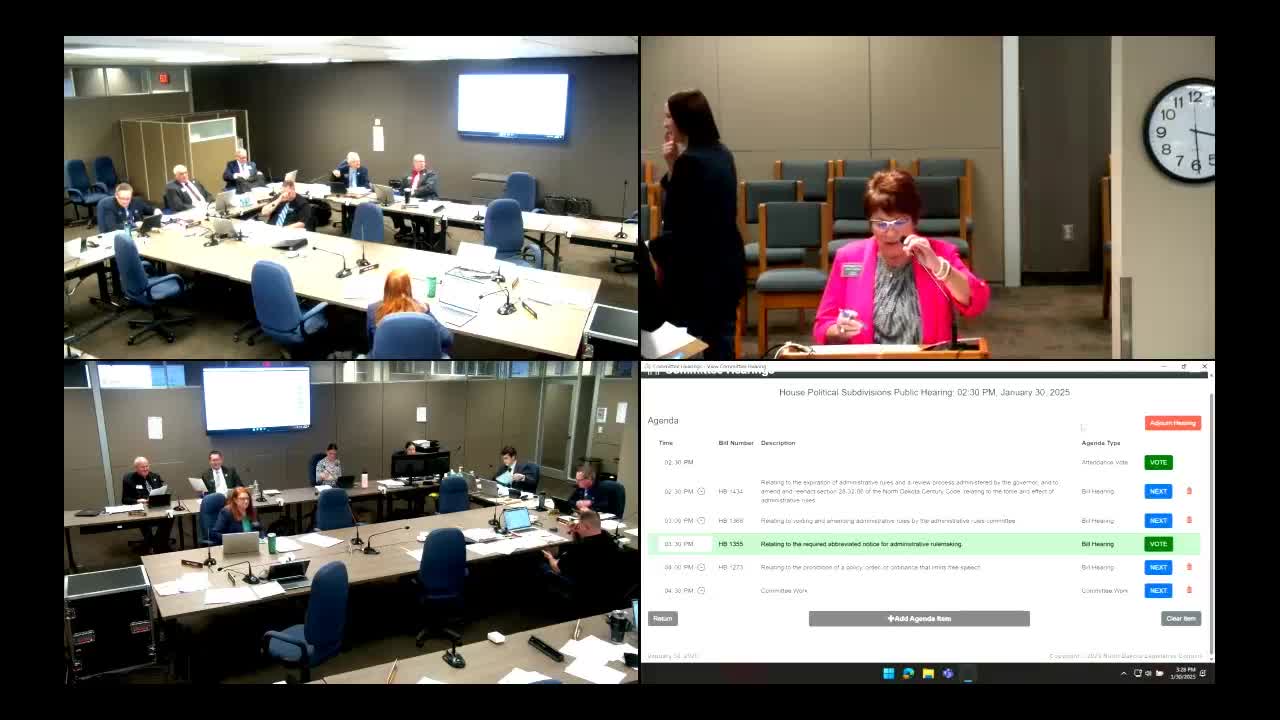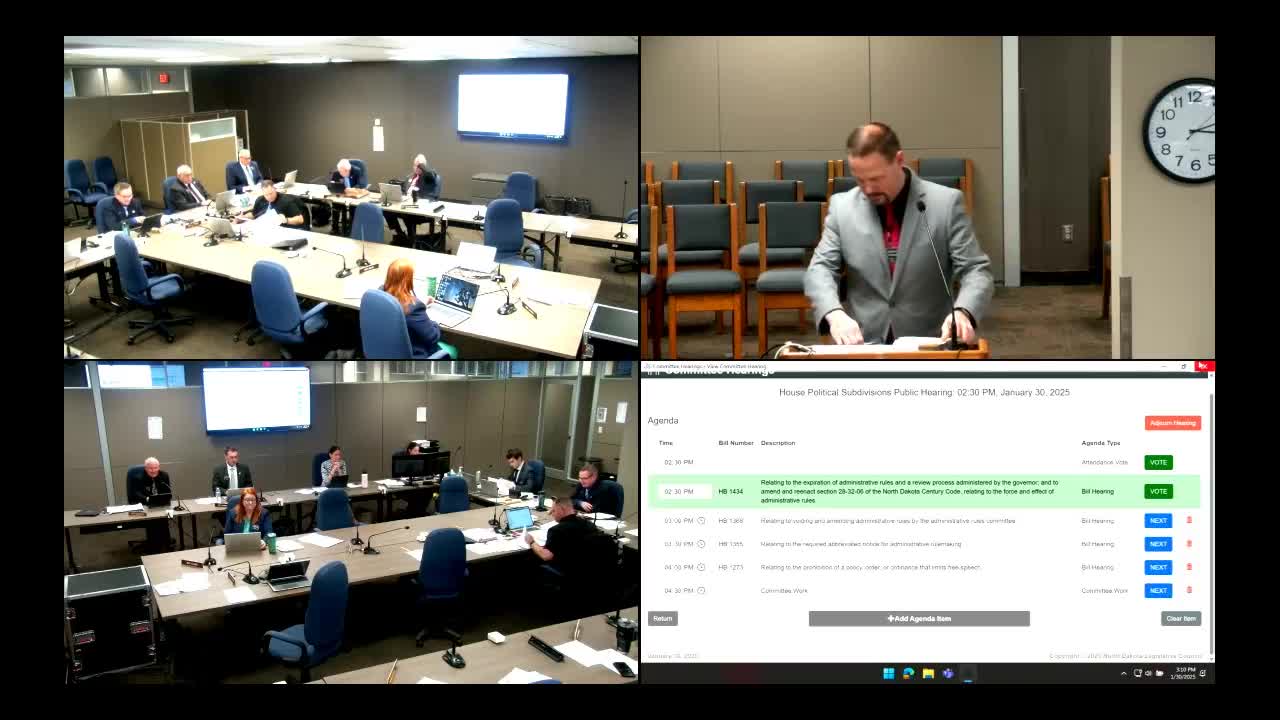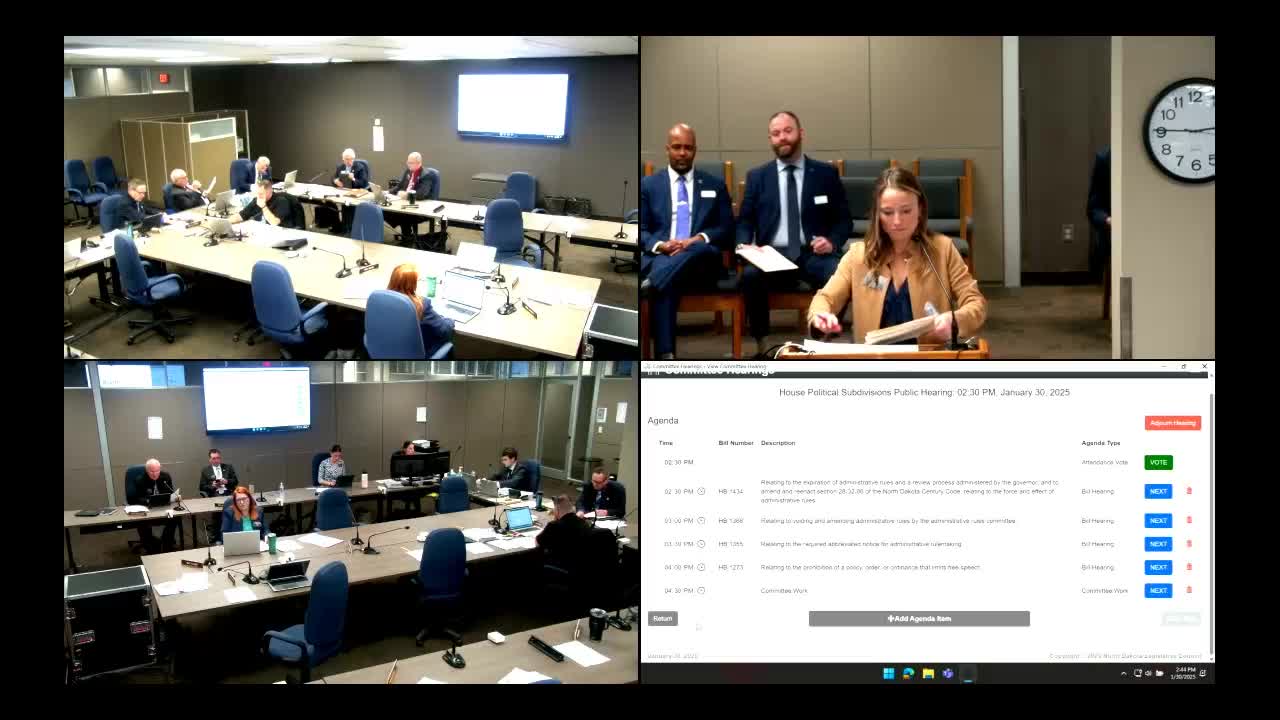Article not found
This article is no longer available. But don't worry—we've gathered other articles that discuss the same topic.

Committee rejects bill that would bar political subdivisions from adopting hate‑crime ordinances or other speech limits

Committee requires short statement in abbreviated rule notices; allows optional QR code

Committee expands tools to void "unnecessary" rules; Administrative Rules Committee bill passes

